The easy way to learn about Judaic culture and dig deep into the beliefs, customs, and history of the Jewish people is to go to Israel. But it’s certainly not the only option. The Jewish diaspora is such that many places around the world, from Australia to South America, have rich Jewish heritage and plenty of opportunities to dive right into the culture. Whether it’s the many kosher restaurants of Barcelona, or the Parisian Marais Jewish district, there are some truly unique ways to know what past and modern Judaism is all about. Here are the cities you should keep on your radar.
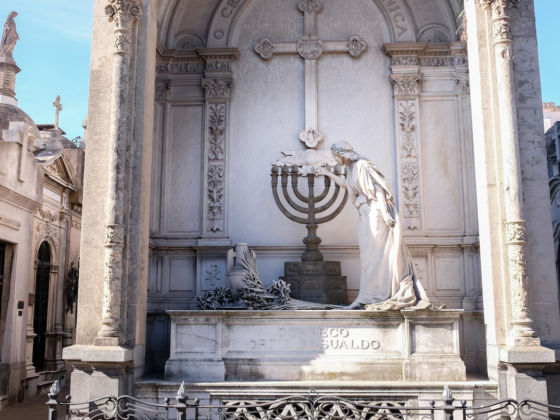

5 Underrated Places to Experience Jewish Culture Outside Israel
1. Barcelona, Spain
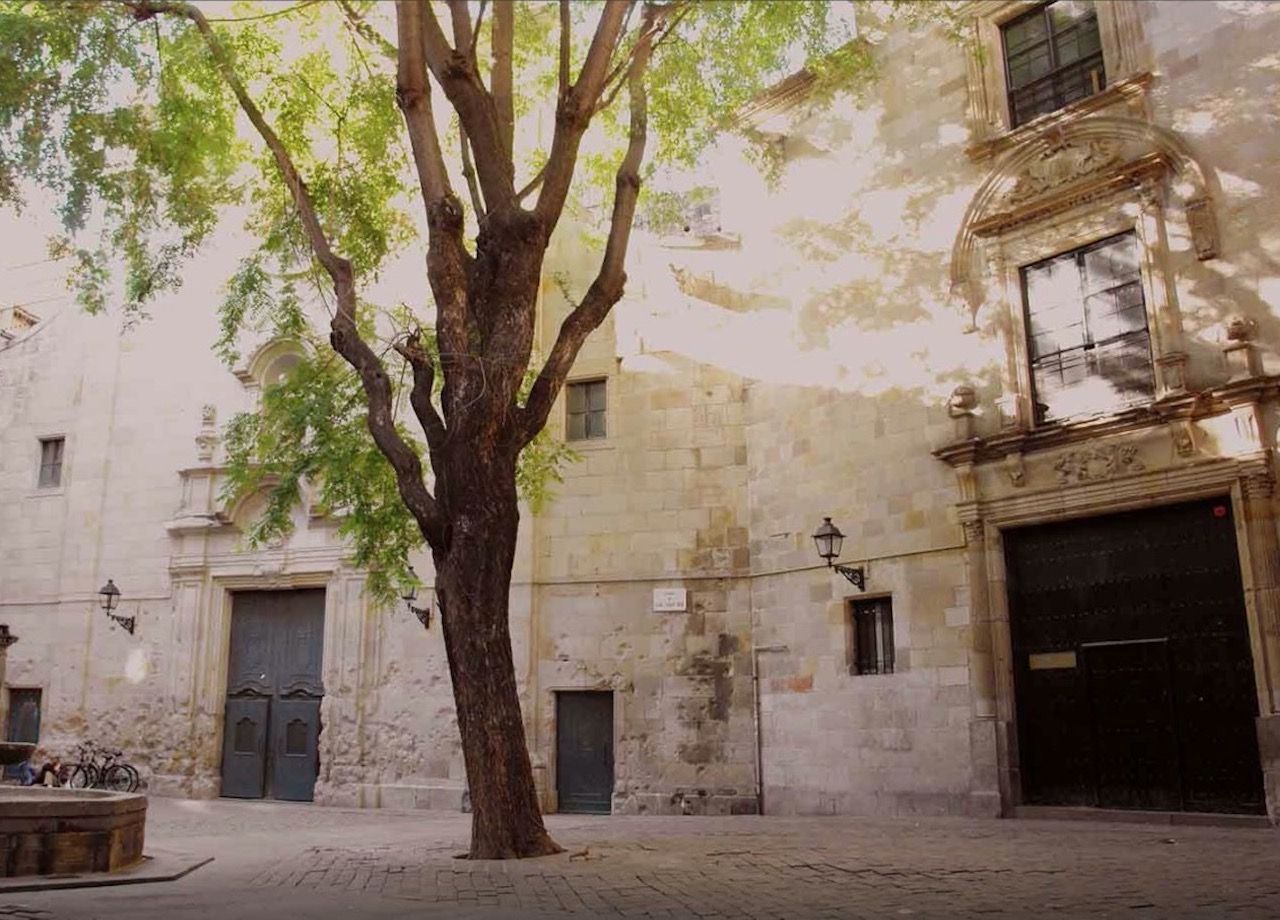
Photo: Sinagoga Mayor de Barcelona
While Barcelona’s Jewish population isn’t huge (estimates vary between 5,000 and 10,000 people since there is no official data), Judaism has a firm foothold and rich history in the city.
Located in the heart of the Gothic Quarter, “El Call,” the Jewish Quarter, comes from the Hebrew word qahal, meaning “meeting place.” You can find proof of the past strong presence of jews in this part of the city, including a tiny basement synagogue: Sinagoga Mayor de Barcelona. After the savage attacks on Jews in 1391 and their official expulsion from Spain in 1492, the medieval synagogue took on a variety of other uses — including a jail and apartment building — and was reopened to the public as a synagogue and a museum in 2002.
Although you can’t attend regular services, it does occasionally host special ceremonies. And if you’re wondering why it’s so tiny — there was a law at the time prohibiting synagogues from being taller than churches, so Barcelona’s old synagogues shrink even beside the smallest church. While in El Call, make sure to also check out the remains of the ancient female Jewish ritual bath in the basement of Cafe Caelum, and of the men’s baths in the back of the furniture store S’Oliver.
On the south side of Barcelona, you can take a cable car to ascend the hill of Montjuïc, Catalonian for the “Mountain of the Jews.” Here, the remains of a Jewish cemetery dating back to the ninth century have been declared a landmark site. The site also includes a Holocaust Memorial composed of stones bearing the names of all the concentration camps that were liberated.
The Jewish population of Barcelona has been revived for about 100 years and today, the oldest house in the city, 12th-century Casa Adret, is home to the Jewish cultural center and functions as the headquarters of Mozaika, a nonprofit organization that promotes Jewish culture in Barcelona. There are currently four active synagogues in the city.
For an expert-lead tour of Barcelona, book Dominique Tomasov Blinder as your guide and enjoy a two-and-a-half-hour or half-day visit of the Jewish Quarter and the Jewish sites of the city.
2. Sydney, Australia
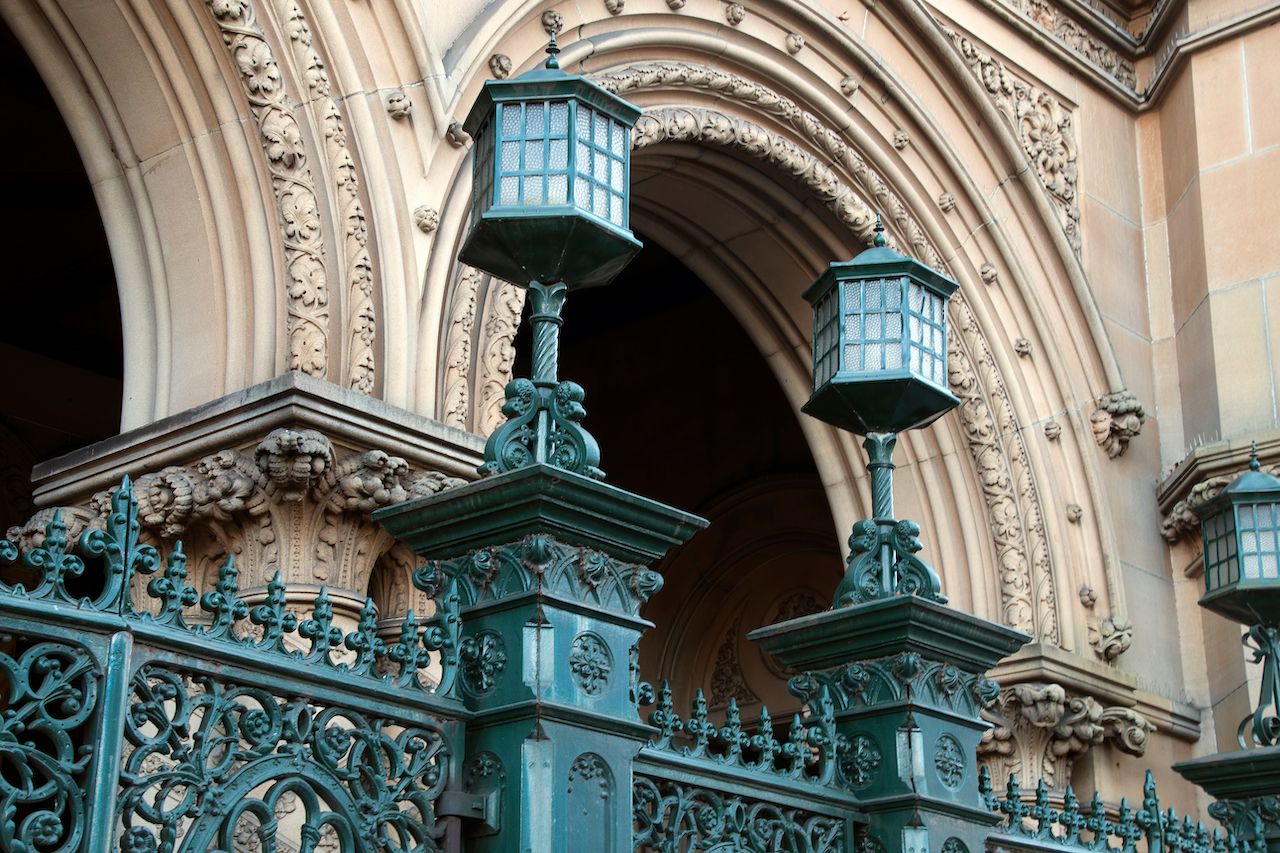
Photo: demamiel62/Shutterstock
Sydney has a vibrant Jewish community, with over 50,000 Jews currently living in the city. There is a wide range of Jewish affiliations present in Sydney, including Orthodox, Reform, Masorti, and Chabad, and even an organization called the Australia Israel & Jewish Affairs Council, which is dedicated to setting up events and volunteer experiences for the city’s Jewish population.
The first major influx of Jews to Sydney occurred when refugees fled Nazi Europe in the late 1930s, and it swelled even larger when Holocaust survivors immigrated after the war. Further migration during the latter half of the 20th century — mainly from Hungary, Russia, Israel, and South Africa — resulted in Sydney’s sizeable Jewish population and rich Jewish cultural tradition.
There are many synagogues in Sydney for worshipers of any Jewish denomination. The Great Synagogue, consecrated in 1878, was restored in 1988 and is a beautiful part of Sydney’s landscape. For a comprehensive understanding of the history of Jews in Sydney, check out the Sydney Jewish Museum in the Darlinghurst neighborhood. The museum not only covers the history of Jews in Australia, but it also houses an impressive collection of Holocaust documents and hosts special events with Holocaust survivors with the aim of educating visitors about human rights issues.
If you’d prefer a more structured experience, you can take a guided tour of Sydney’s important Jewish sites. In addition to the Jewish Museum, you’ll visit a Jewish butcher, baker, bookstore, listen to local stories from a rabbi, and explore the Eastern Suburbs Waterfront Bay where many Jews currently reside.
3. Buenos Aires, Argentina
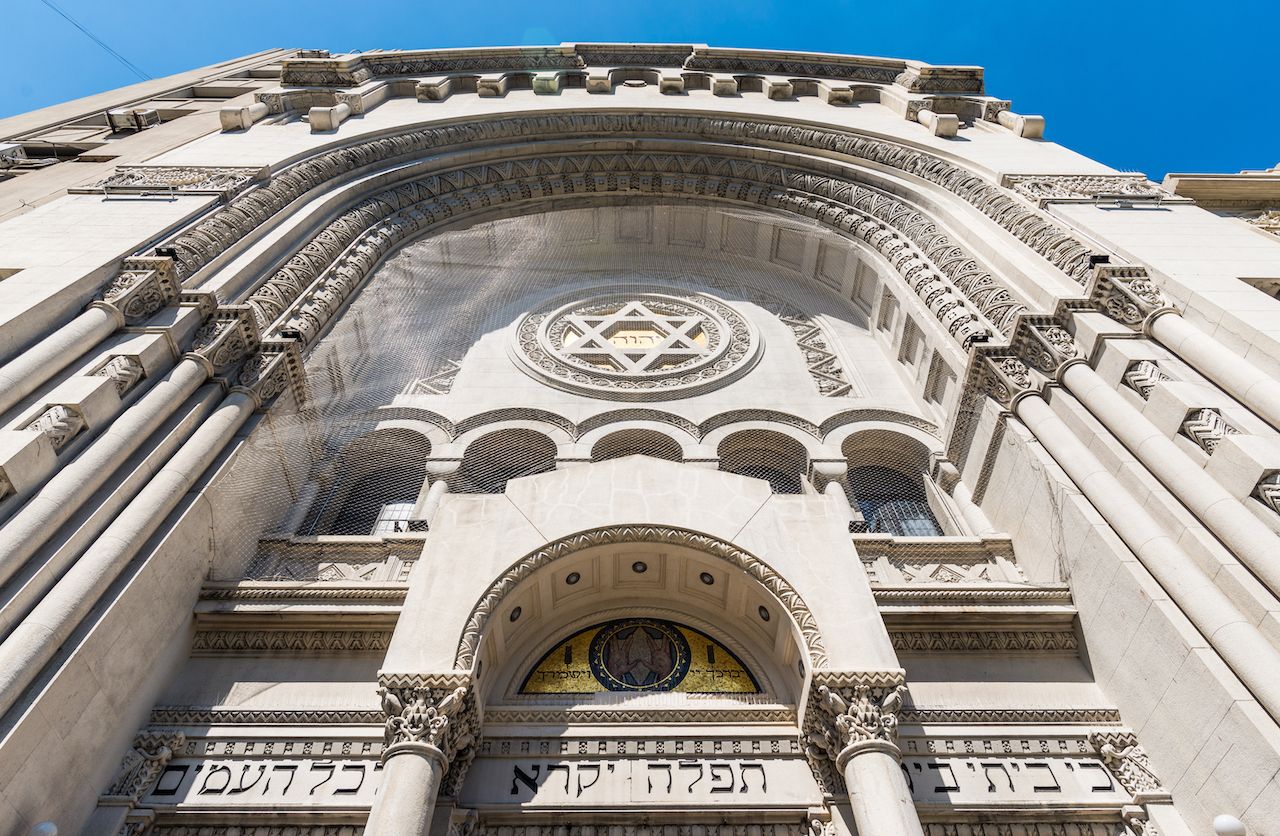
Photo: Alexandr Vorobev/Shutterstock
With the largest Jewish population in South America, Buenos Aires is perhaps one of the most surprising places to find deeply rooted Jewish culture. Eight percent of the city’s inhabitants are Jewish (approximately 200,000 people). As Buenos Aires became an important administrative and commercial center in the 18th century, the number of Portuguese Jews in the city rose dramatically. In the mid-1800s, this number increased with an influx of Jews from Western Europe and Morocco, and the first Jewish organization (Congregación Israelita de la República Argentina) was even founded there as early as 1862. Jewish quotas established by other countries, like the US, led to more Jews migrating to Argentina in the early 1900s, with the last major influx taking place after World War II.
Now, there are substantial Hillel and Chabad communities in Buenos Aires, as well as a Moishe House where young Jews from all over the world can meet. While there may not be an official Jewish Quarter, the Once and Abasto garment districts are home to the city’s largest population of Jews, and to Yesod Hadath, a nearly 100-year-old synagogue.
The Jewish Museum, located in the neighborhood of Centro, has a mission to “tell the story of our immigrants, of the Jewish colonies, of our ancient tradition.” There are also tours available through the museum that weave together the history of Buenos Aires with the arrival of the Jewish people, and their subsequent impact on the city’s culture. The tour includes a visit to a Holocaust memorial, a synagogue, and kosher butchers, delis, and bakeries.
And in case you needed any more persuasion, the city is home to one of the very few kosher McDonald’s outside of Israel.
4. Paris, France
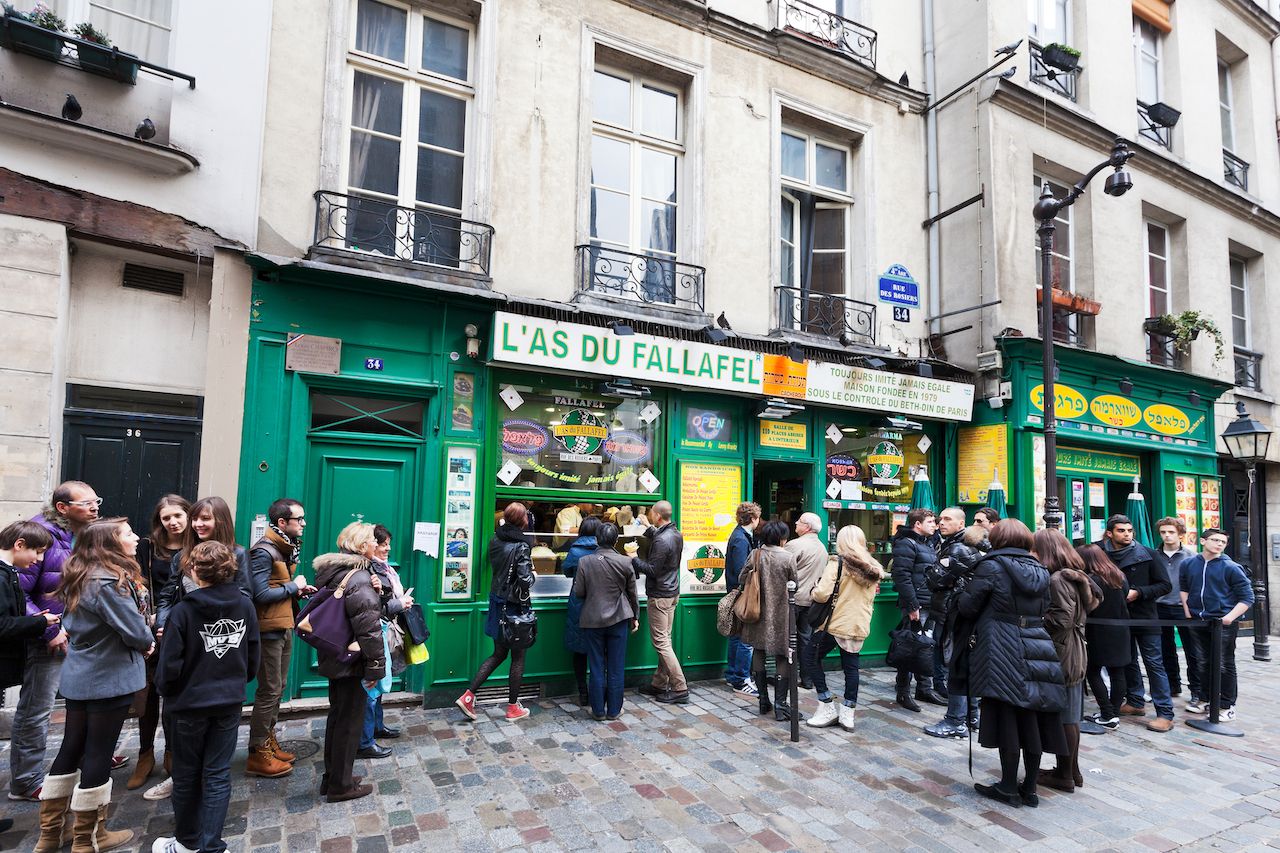
Photo: vvoe/Shutterstock
France’s Jewish community numbers around 500,000 people (the world’s largest Jewish population outside Israel and the United States) and Jews represent six to eight percent of the entire population of Paris, so there are plenty of Jewish shops, restaurants, grocery stores, and museums to check out in the French capital. The fourth arrondissement is the city’s de facto Jewish Quarter, with Jewish businesses lining the Rue Rue des Rosiers, including falafel shops and plenty of synagogues. Known as the Pletzl (Yiddish for “Little Place”), the Marais neighborhood has been home to Jews for centuries and is the perfect place to start for a Parisian Jewish experience.
Your first stop in the Pletzl should be the Agudath Hakehillot, an orthodox synagogue in the Art Nouveau style, and the largest in the district. It was designed in 1914 by architect Hector Guimard, who is also known for his work on the Paris metro stations. Although the synagogue was destroyed by the Germans in 1940, it has since been restored and now stands as a monument to the resilience of the Jewish people of Paris.
Along the rue des Rosiers, you will find Jewish bookshops, prayer rooms, kosher bread and cheese chops, and just around the corner on rue des Hospitalières-St.-Gervais is a Jewish boys school with ties to World War II. A plaque on the school’s wall commemorates the students and teachers who were sent to internment camps, and then to Auschwitz.
Before you leave the Pletzl, visit the Museum of Jewish Art and History on the rue du Temple. The museum uses religious art objects, textiles, manuscripts, and picture exhibits to trace the development of Jewish communities in France and throughout the world.
Two of the most poignant Jewish monuments in Paris, however, aren’t in the Pletzl. Right behind the Notre Dame Cathedral, you can find the Memorial to the Deported, bearing the names of all the German death camps, where French citizens were murdered. Nearby, on the rue Geoffrey l’Asnier, you can see the Memorial of the Unknown Jewish Martyr, which serves as a memorial to the six million Jews killed during the Holocaust.
5. Casablanca, Morocco

Photo: DanKe/Shutterstock
Jews have lived in Morocco for over 2,000 years, and the country was once the largest Jewish community in the Muslim world with 275,000 jews living in the North African country. Today, the Jewish population of Morocco is relatively small, but about 2,000 make their home in Casablanca. The city is home to the Arab world’s only Jewish museum, over 30 ornate synagogues, kosher markets, and several Jewish-owned establishments. The Museum of Moroccan Judaism educates visitors on the 2,000-year history of Jews in Morocco, through the exhibition of Jewish art, clothing, religious relics, a photo and video library, and rooms with reproductions of synagogues.
But the real thing is always better than a replication. Temple Beth-El is the most impressive synagogue in the city, with stained-glass windows, elaborate chandeliers, and ceilings carved with intricate detail. And Jews looking for a religious culture experience aren’t just limited to synagogues. In Casablanca, Jews are allowed the rare opportunity to visit the Hassan II Mosque, one of the few mosques that permits non-Muslims to enter.
The temple is located in the heart of Casablanca’s mellah, or Jewish Quarter. Although relatively new by history’s standards — established less than a century ago — it is an important part of Jewish life in Casablanca and, indeed, all of Morocco. In addition to Temple Beth-El and the museum, the Jewish Quarter has a street food market that sells kosher products, a Jewish cemetery, and plenty of Jewish-owned shops, restaurants, and bakeries. The Casablanca Jewish Heritage Tour is a great way to see this side of Casablanca. It will bring you through the temple, museum and other sacred sites in both the mellah and around the city.